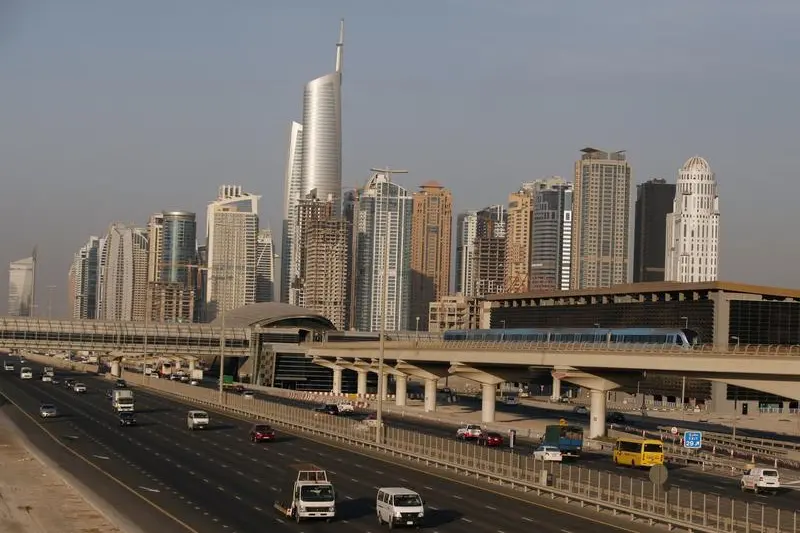PHOTO
A campaign to reduce congestion on Dubai's roads and encourage greater use of public transport looks to be yielding results.
Ridership on the emirate's public transport network rose by more than 8m passengers in 2015, according to Dubai's Roads and Transport Authority (RTA), which is leading the drive to increase bus, taxi, rail and marine transit in Dubai.
Passenger numbers on the rise
Dubai has long been plagued by traffic jams, with gridlocked roads costing the economy upwards of $800m per year through lost productivity, according to a study by the RTA.
To resolve traffic problems and achieve higher passenger numbers, the RTA has adopted a two-pronged approach, introducing smart solutions across Dubai's public transport network, while also strengthening and integrating related infrastructure.
A growing population and the approaching Dubai Expo 2020 event have given the emirate's efforts added impetus.
There are signs that the authority's campaign is working. Public transport as a share of all travel in Dubai rose from 6% in 2006 to around 15% last year, the RTA said, putting the emirate on track to meet a target of 20% by 2020. The emirate is looking to boost the contribution further to 30% by 2030.
Smart connectionsTechnology is playing a growing role in Dubai's public transport operations. Initiatives introduced include a system for overseeing traffic signal timings using real-time traffic flow information. CCTV cameras are supporting the drive, facilitating better monitoring of movements and allowing for quicker responses to bottlenecks and other problems.
The RTA has launched more than 170 smart services as part of a rollout of traffic apps. One navigation app, Smart Drive, which allows for the sharing of real-time traffic information and route advice in both Arabic and English, is proving popular with locals and tourists alike.
Smart Parking, meanwhile, lets drivers pay online to park, while also providing useful information, such as availability of spaces.
Mattar Al Tayer, director-general of the RTA, is convinced that the use of new technology is improving service provision and encouraging greater take-up of public transport.
"These applications use business as well as technical solutions that enable RTA's customers to access its services from anywhere at any time and deliver a better experience for the user," he told OBG.
In addition, point-of-sale (PoS) machines have been installed in the majority of taxis in Dubai to facility electronic payment, with 8000 vehicles equipped with the payment solution as of the end of February, according to the RTA.
Abdulla Qassem, group COO of Emirates National Bank of Dubai and chairman of payment solutions provider Network International, expects the PoS machines to increase the penetration of technology and accelerate the drive towards a cashless economy.
"By the end of the year, we expect 20-30% of taxi users to pay their fare by debit or credit card, which is an impressive achievement given that Dubai remains something of a cash-based economy," he told OBG.
Private companies join smart drivePrivate sector players are also turning to technology to move their operations forward.
Christopher Free, Uber's general manager for the UAE and Qatar, told OBG the local mobile car-hire service could benefit from expanding its app-driven offer by introducing a carpooling system; to date, Uber has targeted individual passengers in the UAE.
"Pool rides could see many cars taken off Dubai's roads and reduce expenses for commuters," Free told OBG. "This is a solution that could be enabled through technology, building in layers of safety and reliability."
The push to upgrade both technological services and infrastructure has been galvanised by Dubai's rising population, which has doubled in the decade to 2016 to nearly 2.5m, as well as preparations for hosting Dubai Expo 2020. According to Free, this is expected to create myriad business opportunities in the transport sector.
The preparations for the six-month expo have seen the emirate sharpen its focus on creating a smooth-flowing transport system to accommodate visitors.
"With Dubai Expo 2020 on the horizon, transportation infrastructure in the emirate will need to expand significantly in order to successfully accommodate the huge influx of people," Mudassir Sheikha, co-founder of Careem, one of the leading mobile car-hire services companies in the region, told OBG. "In order to build this infrastructure most efficiently, smart solutions will be key, along with a strong focus on affordability and convenience."
Organisers expect the event to attract around 25m attendees, many of whom - an estimated 70% - will be coming from abroad. Smart solutions will be pivotal for providing visitors with travel and transport information for navigating the expo.
© Oxford Business Group 2016





















